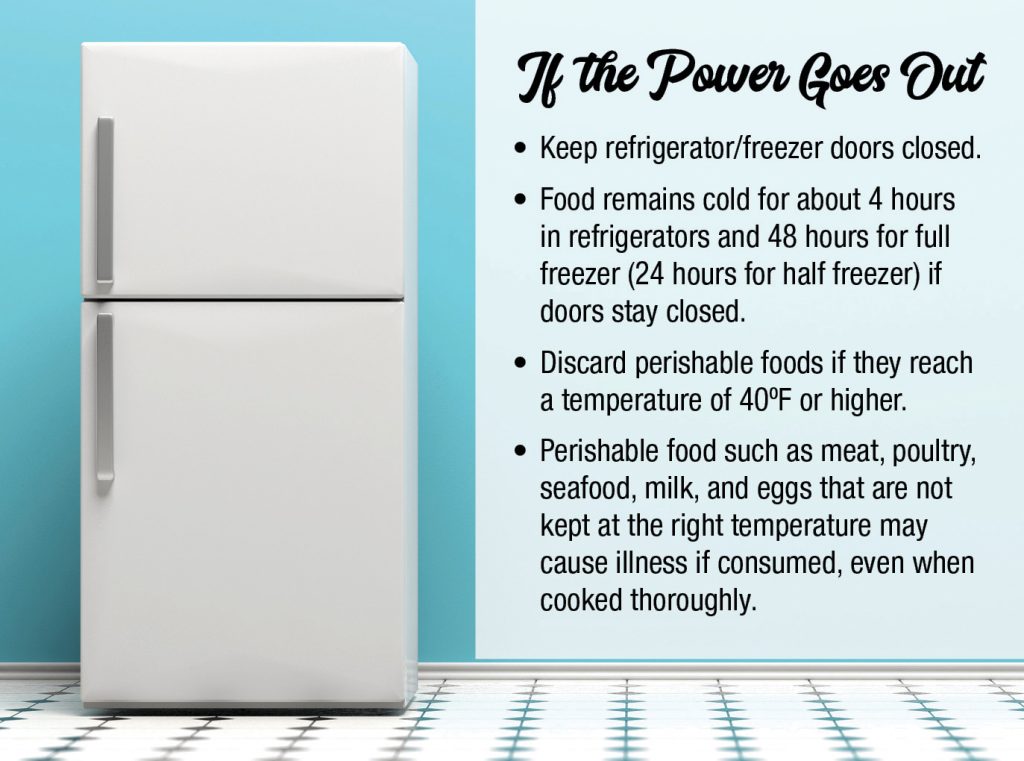Emergencies can happen, especially with extreme weather conditions. When they do, the best strategy is to already have a plan in place. This includes knowing the proper food safety precautions to take before, during, and after a power outage.
Here are basic tips for keeping food safe
• Keep the refrigerator and freezer doors closed as much as possible to maintain the cold temperature.
• The refrigerator will keep food cold for about 4 hours if it is unopened.
• A full freezer will keep the temperature for approximately 48 hours (24 hours if it is half full) if the door remains closed.
• Buy dry or block ice to keep the refrigerator as cold as possible if the power is going to be out for a prolonged period of time. Fifty pounds of dry ice should keep an 18 cubic foot, fully stocked freezer cold for two days.
• If you plan to eat refrigerated or frozen meat, poultry, fish, or eggs while they are still at safe temperatures, it is important that each item is thoroughly cooked to a safe minimum internal temperature to ensure that any foodborne bacteria that may be present are destroyed. However, if at any point the food was above 40 F for two hours or more (or one hour if temperatures are above 90 F) — discard it.
Once power is restored, determine the safety of your food
• If an appliance thermometer was kept in the freezer, check the temperature when the power comes back on. If the freezer thermometer reads 40 F or below, the food is safe and may be refrozen.
• If a thermometer has not been kept in the freezer, check each package of food to determine its safety. You can’t rely on appearance or odor. If the food still contains ice crystals or is 40 F or below, it is safe to refreeze or cook.
• Refrigerated food should be safe as long as the power was out for no more than four hours and the refrigerator door was kept shut. Discard any perishable food (such as meat, poultry, fish, eggs, or leftovers) that has been at temperatures above 40 F for two hours or more (or one hour if temperatures are above 90 F).
• Perishable food such as meat, poultry, seafood, milk, and eggs that are not kept adequately refrigerated or frozen may cause illness if consumed, even when they are thoroughly cooked.
Source: United States Food and Drug Administration




